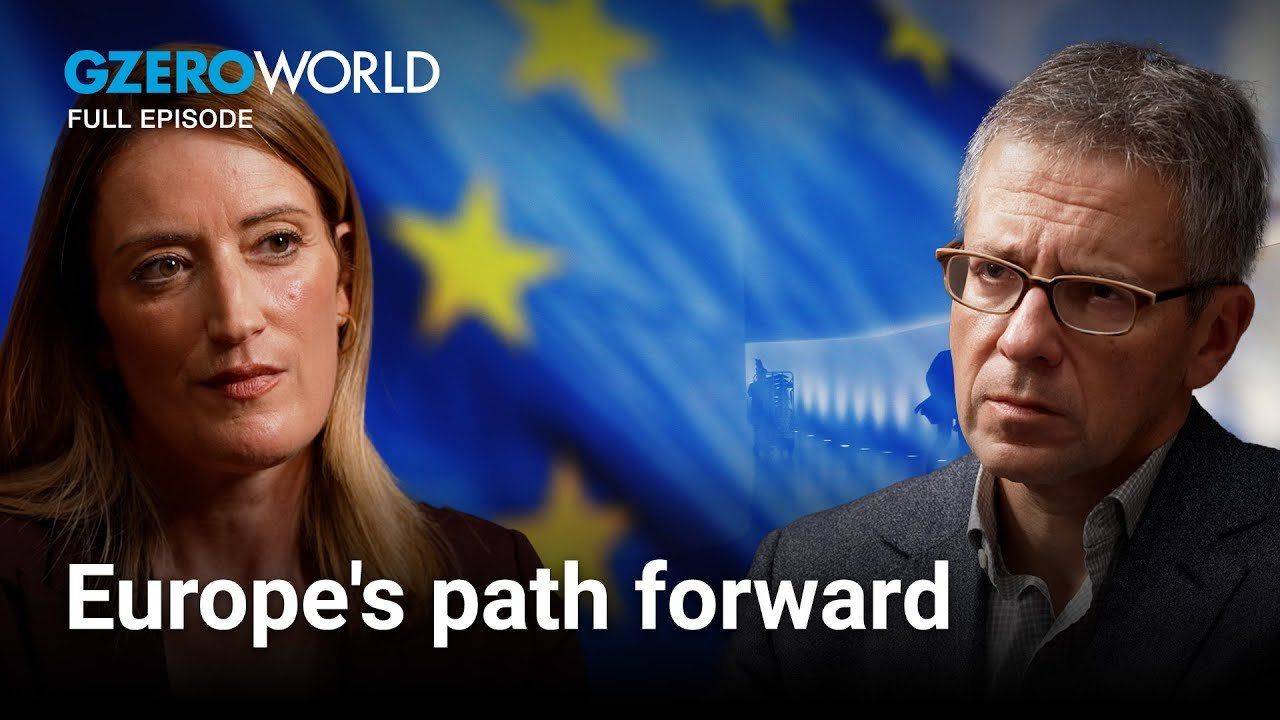
It’s a critical time for Europe. In the recent European Union elections, voters unhappy with the establishment status quo delivered historic gains for far-right, nationalist parties in countries like France and Germany. But a fractured EU Parliament makes it harder for the ruling centrist coalition to deliver on key priorities like immigration reform and the Green deal. Can the 27 member states come together to address big challenges?
On GZERO World with Ian Bremmer, European Parliament President Roberta Metsola discusses Europe’s future amid an ongoing migrant crisis, the war in Ukraine, and an economic slowdown. The EU is the world’s largest trading bloc and a regulatory superpower, but Metsola says Europe needs to strengthen its strategic autonomy to avoid getting squeezed by the US and China. Part of that vision includes Ukraine joining the European Union, which Metsola tells Bremmer is unequivocably “win-win” for both sides. But finding consensus among so many countries, cultures, and political parties in the EU government can be a major challenge.
“We’re not yet coherent, I think we've weakened ourselves by being a cacophony of what we think we want,” Metsola says, "We still have not, as a European Union, become better as a whole than individual countries.“
GZERO World with Ian Bremmer, the award-winning weekly global affairs series, airs nationwide on US public television stations (check local listings).
New digital episodes of GZERO World are released every Monday on YouTube. Don't miss an episode: subscribe to GZERO's YouTube channel and turn on notifications (🔔).
- Austrian, Hungarian, and Czech far-right form new EU coalition ›
- How the EU Parliament elections work ›
- Europe plays the blame game over asylum-seekers ›
- How Ukraine's EU membership would change Europe ›
- Ian Explains: If the US steps back from Ukraine, can Europe go it alone? ›
- The 2024 Paris Peace Forum faces a dysfunctional global order - GZERO Media ›
- UN's Rebeca Grynspan on the world’s debt crisis: Can it be solved? - GZERO Media ›